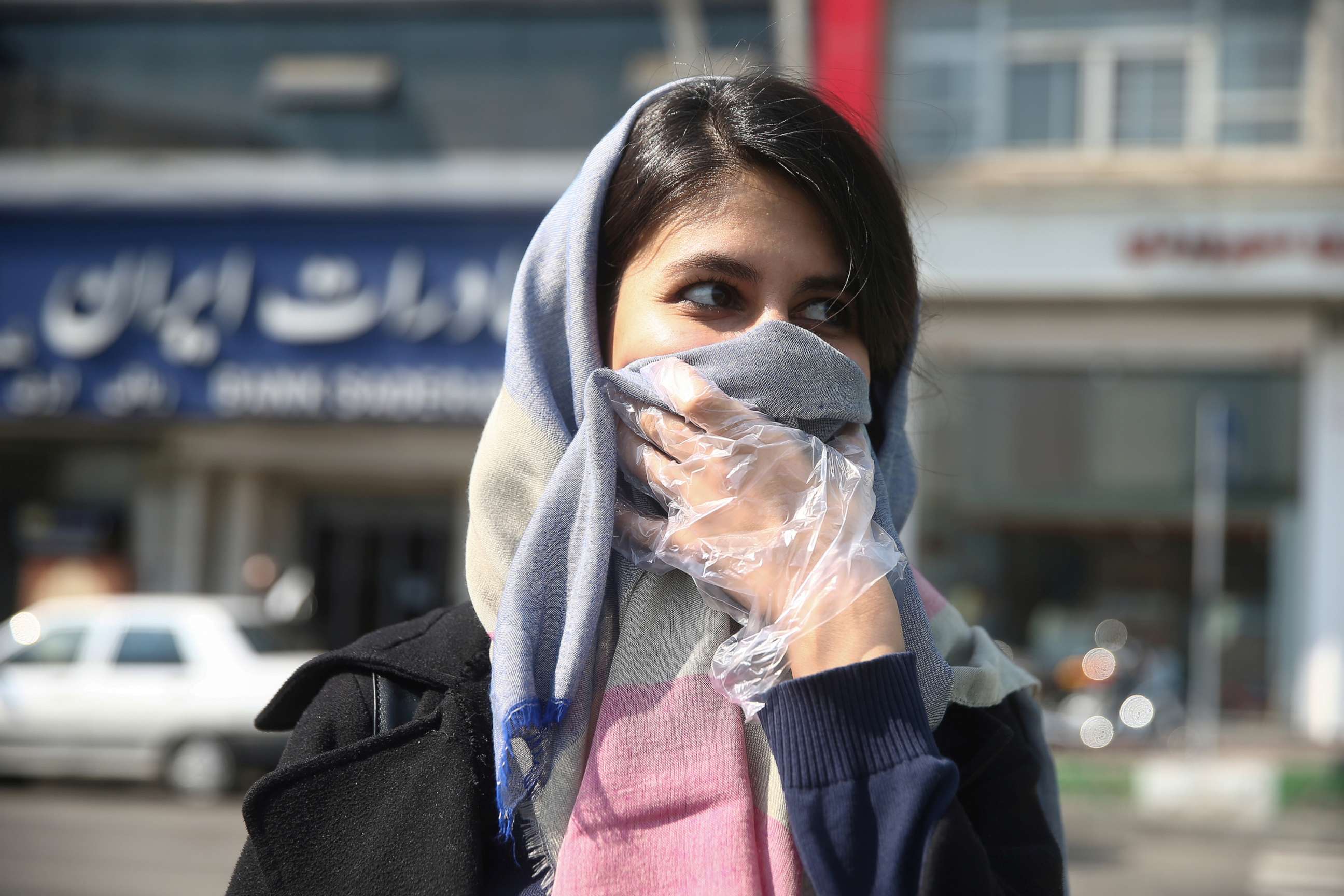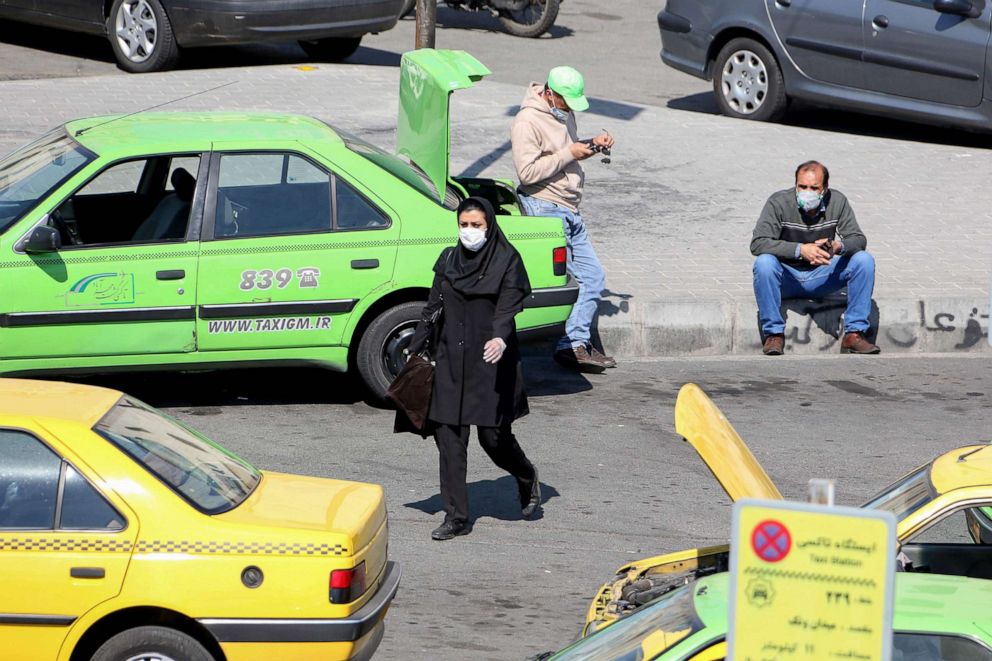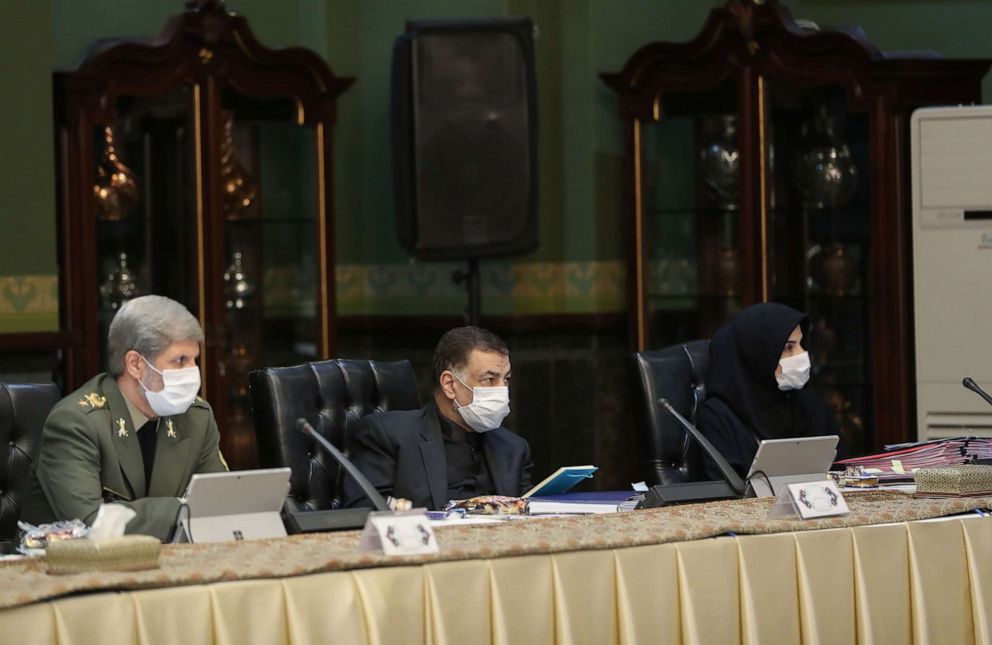In Iran, coronavirus has led to shortage of supplies -- and reliable information
The nation already has confirmed more than 10,000 cases.
Iranian Foreign Minister Mohammad Javad Zarif called for lifting all U.S. sanctions on Iran in a letter to the U.N. secretary general as part of an effort to battle the coronavirus outbreak, Abbas Mousavi, a ministry spokesperson, tweeted on Thursday.
Twenty days after official confirmation of the nation's first coronavirus infection, top officials have complained of slow imports of medical supplies due to sanctions and restrictions on banking.
Iran has confirmed at least 10,075 cases of COVID-19 infection and 429 fatalities, according to a report on Thursday by Fars News.

"Americans claim they have opened up the path [for transactions]," Mousavi said at a press conference on Wednesday. "If it is true, I ask them to state it to everyone" that sending supplies to Iran doesn't violate restrictions set forth by the Treasury Department's Office of Foreign Assets Control.
However, many Iranians believe the most important tactic to controlling the outbreak is reliable access to information about it. They're clamoring for better reporting by state media, which hasn't always provided timely and accurate data on the disease.
"If I can fix something first, that would be giving accurate information to the people," said a Tehran-based doctor who treats coronavirus-infected patients daily.
"Of course," added the doctor, who declined to disclose his name for security concerns, "we still have shortage of equipment, but we have managed to help each other with masks, gowns and shields. But we cannot reach 80 million people just through our Instagram accounts. That's the access the state TV has."
After witnessing what's happened in China and in Italy, many Iranians used social media to criticize officials there for not locking down epicenters of the virus such as the holy city of Qom and the northern city of Rasht.

Some have said a lockdown of Qom wasn't implemented because of hardliner figures' resistance to isolate the holy shrine of Fatima Masoumeh, sister of the eighth Imam of Shia Muslims. The shrine still received thousands of pilgrims until about a week after official confirmation of COVID-19 spread. Videos went viral that showed some clergymen inviting religious people keep attending the shrine, saying that religious gatherings didn't endanger believers' health.
"You wouldn't stand on the flood path praying to remain safe from the flood," said a Qom-based cleric, who supports the idea of quarantining the city and limiting access to the shrine during the virus outbreak. He did not want his name disclosed for security reasons.
"I know some of my fellow clergymen have disagreed the closure of the holy shrine in Qom, but it is obviously not the decision that Imams of Shia would make," he continued. "They would protect people's lives by closing the shrine and the city until the virus would vanish."

The clergyman said he and all of his family were infected with COVID-19 but were recovered after two weeks of isolation at home.
"It's already too late, and many people in my town have realized the danger, but still I believe putting the city in isolation might help," he added.
The Tehran-based doctor also believes while it may be too late to put cities in quarantine, it's still a way to control the speed of the spread, possibly delaying the exhaustion of medical supplies and personnel.
"We need to buy time. And if closing cities is not possible, then people need to get informed of the scale of the danger," the doctor added. "There is a fine line between not frightening the people by telling them the truth and keeping them in ignorance. This time, keeping them away from fear may cost their lives."



